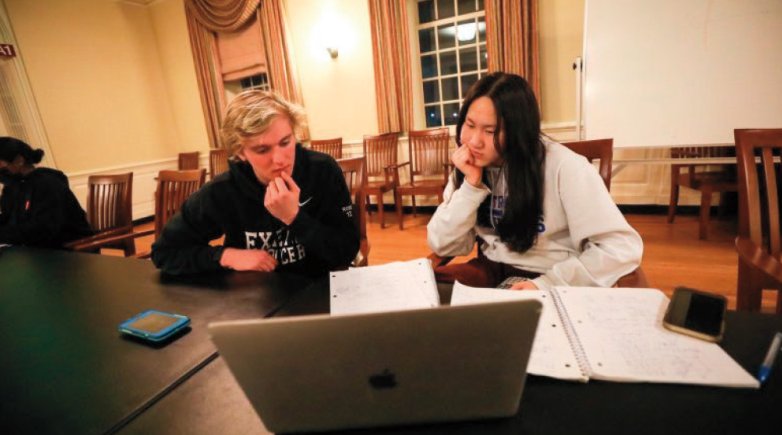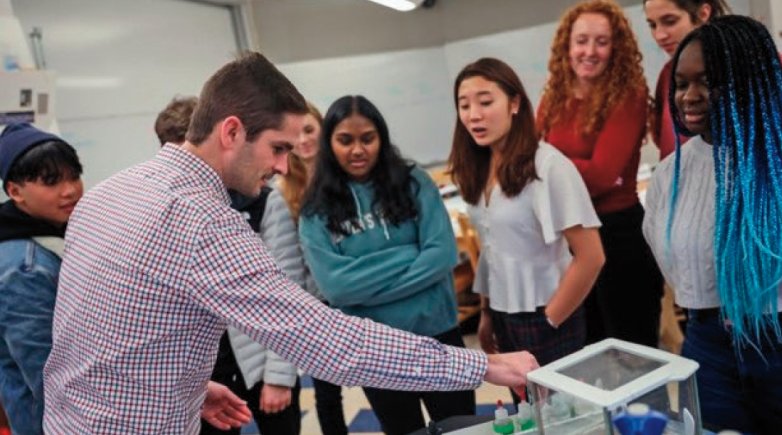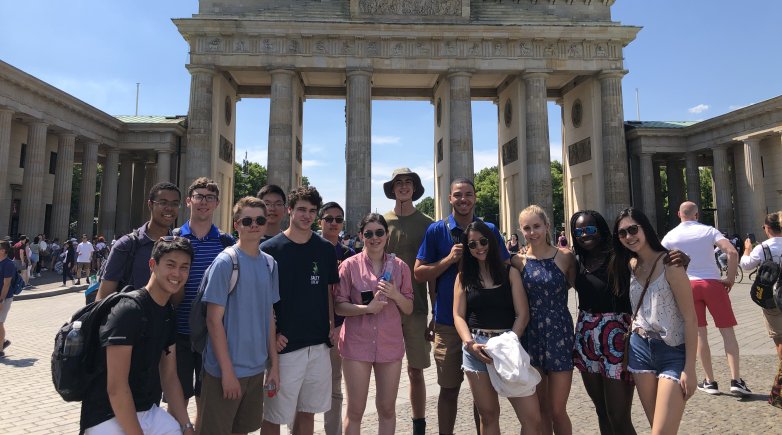Exeter's Immediate Priorities
While Exeter continues to attract remarkable young people from every corner, gifts to the Exeter Fund allow the Academy to expand its academic support resources to ensure that all students can access the resources they need to thrive. The Learning Center in Phillips Hall is the hub for many of these resources, where students can drop in during open hours any weeknight to get help from peer tutors in Latin, Spanish, Chinese, French, and German. Adult instructors are also on hand to provide assistance in math, the sciences, and writing. The Learning Center program is a student-focused pillar of The Center for Teaching and Learning (Harkness outreach and programs for educators are the others) and is an expansion of what began for writing and math a few years ago. The recurring evening hours at one location are meant to provide structure and predictable opportunities to seek help, or to keep kids on track.



